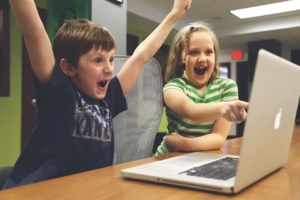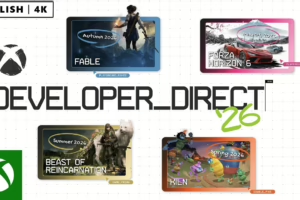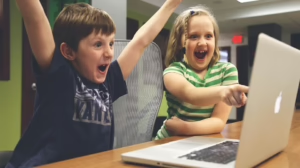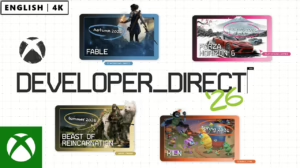The Evolution of Modern Society and Its Impact on Daily Life
Introduction
In a world where change is the only constant, modern society continues to evolve, influencing our daily lives in myriad ways. From technological advancements to shifts in cultural attitudes, the fabric of our existence is intricately woven with threads of innovation, globalization, and social upheaval. This article aims to explore the various dimensions of modern society, examining how they shape our experiences and interactions in contemporary life.
The Technological Revolution
1. The Rise of Digital Communication
The advent of the internet has transformed communication, enabling instant connectivity across the globe. Social media platforms, email, and messaging apps now dominate how we interact, often blurring the lines between personal and professional life. This digital shift has fostered a hyper-connected society but also led to challenges such as misinformation, cyberbullying, and diminished face-to-face interactions【1].
2. The Impact of Artificial Intelligence
Artificial Intelligence (AI) is becoming an integral part of our daily routines. From virtual assistants like Siri and Alexa to sophisticated algorithms that recommend products and content, AI enhances convenience but raises ethical questions about privacy and job displacement【2】. As machines become smarter, the human role in the workforce and society at large is also evolving.
3. The Gig Economy
With the rise of platforms like Uber, TaskRabbit, and Upwork, the gig economy has transformed traditional employment. People now have the flexibility to work on their terms, but this comes with its own set of challenges—lack of job security, benefits, and legal protections for gig workers【3】. The gig economy reflects broader shifts in how we view work and success.
Cultural Shifts
1. Changing Family Dynamics
Modern families are increasingly diverse, encompassing various structures, including single-parent households, blended families, and same-sex couples. This shift challenges traditional norms and creates a more inclusive environment, though it can also lead to societal tensions regarding acceptance and understanding【4】.
2. The Role of Gender and Identity
Gender roles are becoming more fluid, leading to a re-examination of traditional masculinity and femininity. Concepts like gender identity and expression are now more widely understood, resulting in greater advocacy for LGBTQ+ rights【5】. This evolution in understanding has significant implications for policy-making and social justice movements.
3. The Influence of Globalization
Globalization has made the world smaller, facilitating the exchange of cultures, ideas, and goods. While this interconnectedness drives economic growth and innovation, it can also lead to cultural homogenization and the loss of local traditions【6】. Striking a balance between embracing global influences and preserving cultural identities is more important than ever.
The Environmental Challenge
1. Climate Change Awareness
The growing awareness of climate change has shifted public opinion and policy initiatives toward sustainability. Movements advocating for renewable energy and environmental conservation are gaining momentum, reflecting a societal commitment to addressing ecological challenges【7】. However, the pace of change is often slow, leading to frustrations among activists and concerned citizens.
2. Urbanization and Its Effects
As more people migrate to urban centers in search of opportunities, cities face unique challenges, including congestion, pollution, and inadequate infrastructure. Urban planning efforts aim to create sustainable environments that promote public health and well-being【8】. Balancing growth with quality of life is a central issue for modern societies.
3. The Rise of Minimalism
In response to consumerism and environmental degradation, many individuals are adopting minimalist lifestyles. This movement encourages people to prioritize experiences over possessions, leading to mindful consumption and a reduced ecological footprint【9】. Minimalism reflects a broader cultural shift toward simplicity and sustainability.
Health and Wellness
1. The Mental Health Crisis
Recent years have seen a rising awareness of mental health issues, spurred by increased media coverage and advocacy. While stigma still exists, more individuals are seeking help, contributing to a societal shift toward prioritizing mental well-being alongside physical health【10】. This emphasis on mental health has influenced policies in workplaces, schools, and communities.
2. The Fitness Revolution
The explosion of fitness culture emphasizes the importance of physical health in modern society. With the availability of fitness classes, apps, and wearable technology, people are more engaged in health than ever before. However, this focus can also lead to unrealistic body standards and the pressure to conform【11】.
3. Nutrition and Diet Trends
In an age of information, dietary choices are more diverse than ever. From plant-based diets to keto and intermittent fasting, individuals are navigating a complex landscape of nutritional advice. This variety reflects a growing awareness of the relationship between food, health, and the environment【12】.
Economy and Work
1. The Shift to Remote Work
The COVID-19 pandemic accelerated the trend of remote work, transforming how we think about the workplace. Many employees now enjoy the flexibility of working from home, which can lead to enhanced productivity but also raises concerns about isolation and work-life balance【13】. Organizations must adapt to this evolving landscape to maintain employee satisfaction and effectiveness.
2. The Rise of Cryptocurrency
Cryptocurrency has emerged as a significant player in the financial landscape, challenging traditional banking and currency systems. As more people invest in digital currencies, this shift raises questions about regulation, stability, and the future of money【14】. The implications of cryptocurrency extend beyond finance to include privacy and security issues.
3. The Changing Nature of Education
The educational landscape is also evolving, influenced by technology and economic demands. Online learning platforms and alternative educational models are challenging traditional schooling systems, providing greater accessibility but also creating disparities in educational quality【15】. Rethinking education is essential for preparing future generations for a rapidly changing job market.
Conclusion
Modern society is a tapestry of influences and experiences that shape our daily lives. From technology and culture to wellness and economy, the forces at play are complex and interwoven. Understanding these changes is crucial for navigating the challenges and opportunities that lie ahead. As we continue to adapt to this ever-evolving landscape, it is essential to prioritize inclusivity, sustainability, and well-being for all members of society.
References
- Smith, J. (2020). “The Social Media Dilemma: Balancing Connectivity and Privacy.” Journal of Digital Communication.
- Johnson, L. (2021). “Artificial Intelligence: Friend or Foe?” Tech Trends.
- Thompson, R. (2022). “The Gig Economy: New Opportunities and Challenges.” Business Review.
- Carter, M. (2019). “Diverse Families in Modern Times.” Sociology Today.
- Patel, A. (2022). “Gender Identity and Society: A New Era.” Cultural Studies Journal.
- Garcia, E. (2021). “Globalization: The Double-Edged Sword.” World Economics.
- Williams, K. (2020). “Climate Change Awareness: The New Normal.” Environmental Studies.
- Lee, H. (2023). “Urban Planning in the 21st Century.” Cityscape Journal.
- Brown, T. (2021). “Minimalism: Less is More.” Lifestyle Magazine.
- Green, S. (2022). “Addressing the Mental Health Crisis.” Psychology Review.
- Ford, N. (2023). “The Fitness Revolution: Transformation in Society.” Health Journal.
- Kim, J. (2020). “Nutrition Trends: Navigating Modern Diets.” Nutrition Today.
- Stevens, R. (2021). “Remote Work: The Future is Now.” Workplace Dynamics.
- Anderson, P. (2022). “Cryptocurrency: The Future of Money?” Finance Magazine.
- White, L. (2023). “Education Reimagined: The Future of Learning.” Education Innovations.
Feel free to modify or add to this content as needed!


























Add Comment